5 key takeaways from the 1st day of the public impeachment hearing
The House convened its first impeachment hearing in more than 20 years.
The House on Wednesday convened its first impeachment hearing in more than 20 years. Testifying was William Taylor, the top U.S. diplomat in Ukraine, and George Kent, the State Department's top career official tasked with Ukraine policy.
Here are the key takeaways:
New details involving another Trump phone call
Much of Wednesday's testimony recounted details already provided in closed-door depositions. But there was one new detail that raised fresh questions about the extent to which President Donald Trump was personally involved in the pressure campaign against Ukraine.
According to Taylor, one of his staffers was in a restaurant in Kyiv with Gordon Sondland following a meeting with Ukraine President Volodymyr Zelenskiy when he overheard a call between Sondland and Trump, in which Trump asked Sondland the status of "the investigations." Sondland is a close Trump ally and megadonor who is serving as U.S. ambassador to the European Union.
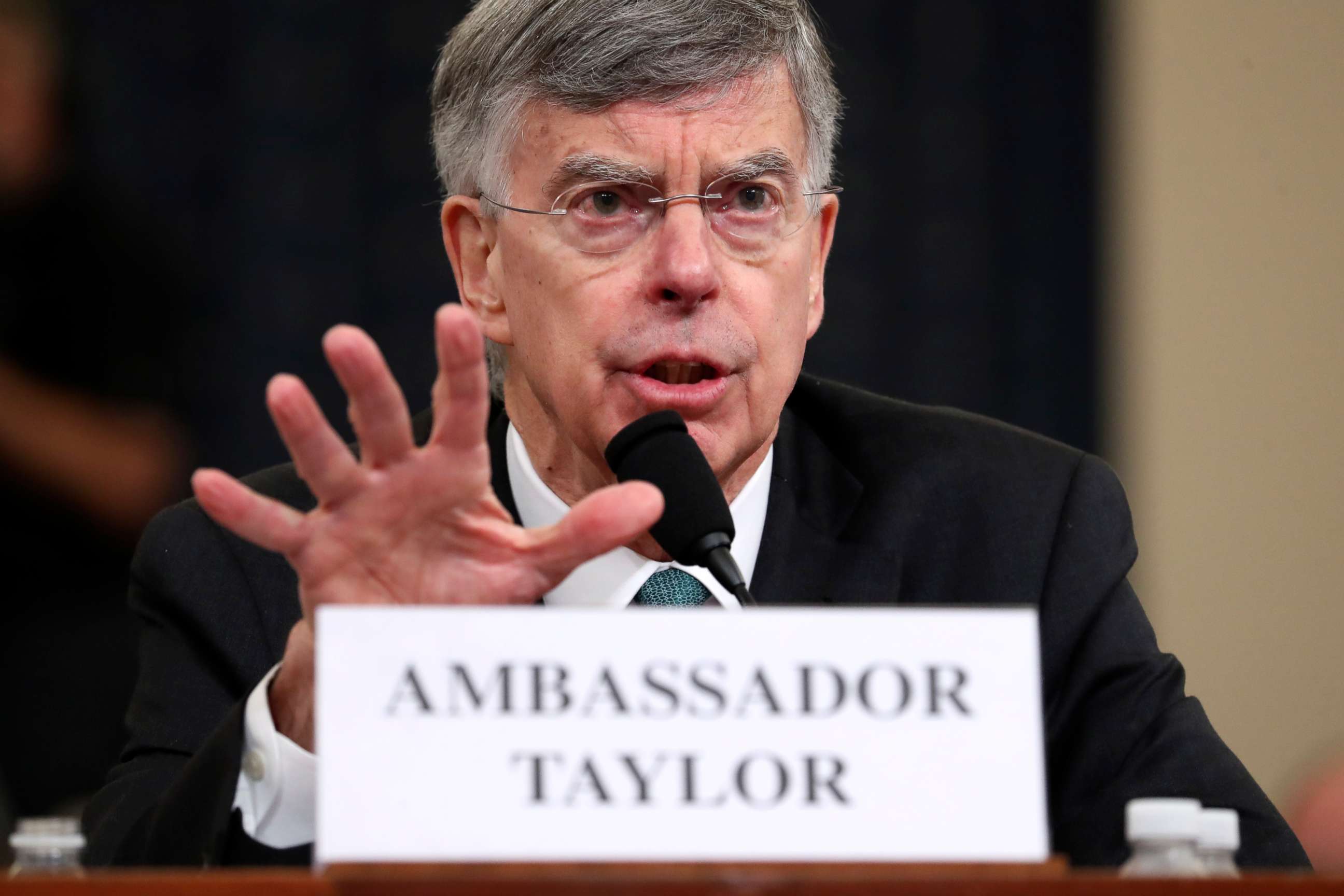
The alleged phone call took place on July 26, one day after Trump's phone call to Zelenskiy in which he asked Ukraine's leader for an investigation involving Democrat Joe Biden.
"The member of my staff could hear President Trump on the phone, asking Ambassador Sondland about 'the investigations,'" Taylor said. "Ambassador Sondland told President Trump that the Ukrainians were ready to move forward."
Following that call with Trump, the staffer asked Sondland what the president thought about Ukraine, according to Taylor. "Ambassador Sondland responded that President Trump cares more about the investigations of Biden," which Trump's personal lawyer Rudy Giuliani had been "pressing for," Taylor said.
When questioned about it at a White House news conference with Turkish President Recep Tayyip Erdogan, close to the end of the hearing, Trump said he has no recollection of the phone call with Sondland in question.
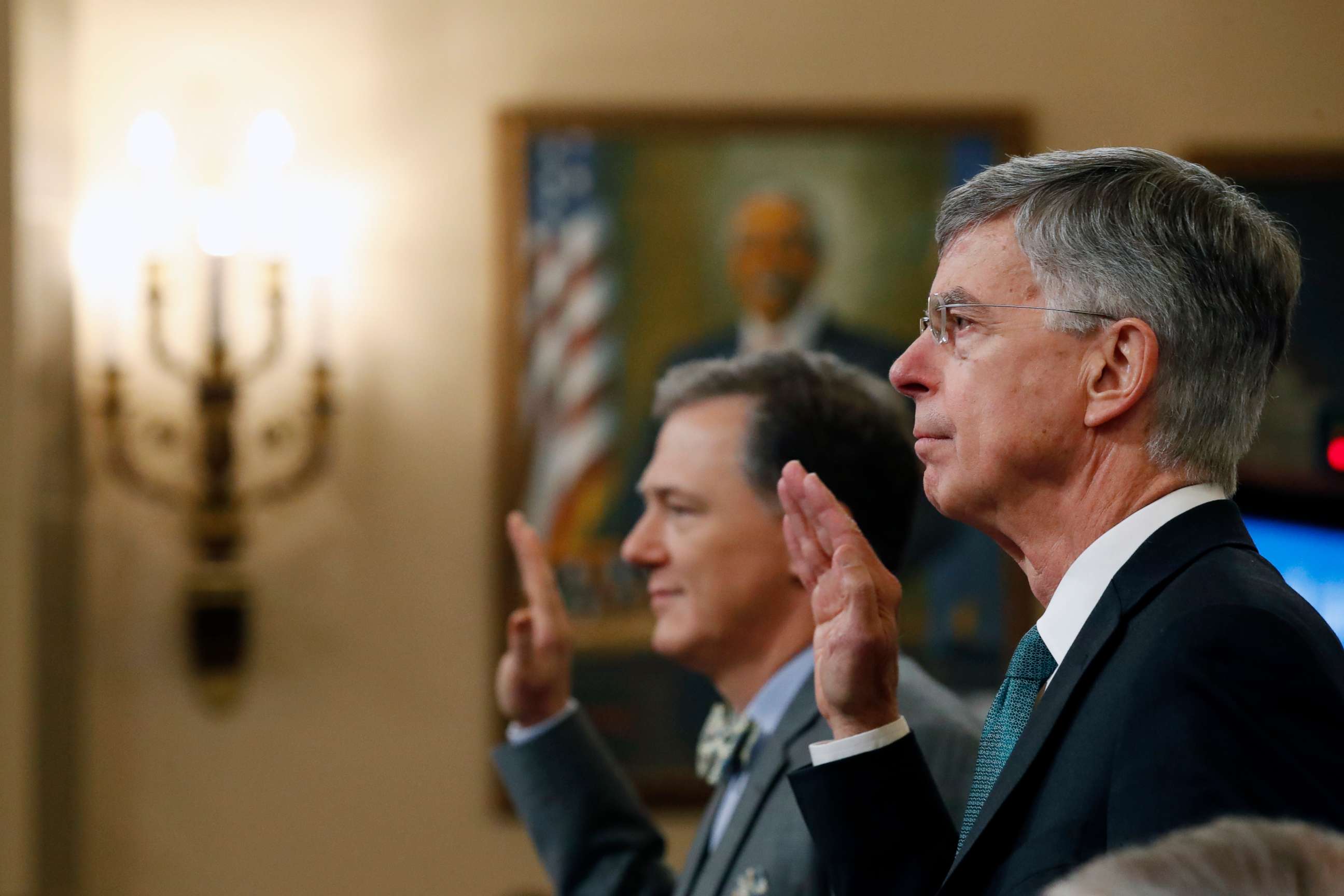
It's still a question as to when exactly Ukraine figured out military aid was frozen
This is a key point for Republicans, who contend that Trump can't be accused of personally imposing a "quid pro quo" in his July 25 phone call because, they say, Ukraine had no idea that military aid was on hold at that time.
The hold was reported by Politico on Aug. 28, and Sondland has previously testified that he told Ukraine directly on Sept. 1 that security assistance was contingent upon its willingness to conduct an investigation.
By that point though, the military assistance had been frozen for several weeks and aides within the Trump administration were scrambling to figure out why. Taylor testified on Wednesday that it was already clear to him by that point that a White House summit was contingent upon Ukraine's willingness to agree to an investigation.
Taylor said he personally didn't hear from his Ukrainian counterparts expressing concern about the aid until after the Politico article published. Other witnesses testified in separate closed-door hearings that their Ukrainian counterparts had figured it out earlier than that. The State Department's Catherine Croft couldn't give an exact date the Ukrainians found out, other than it was "earlier than I expected them to."
"I think there's still some question as to when they may have heard," Taylor said.
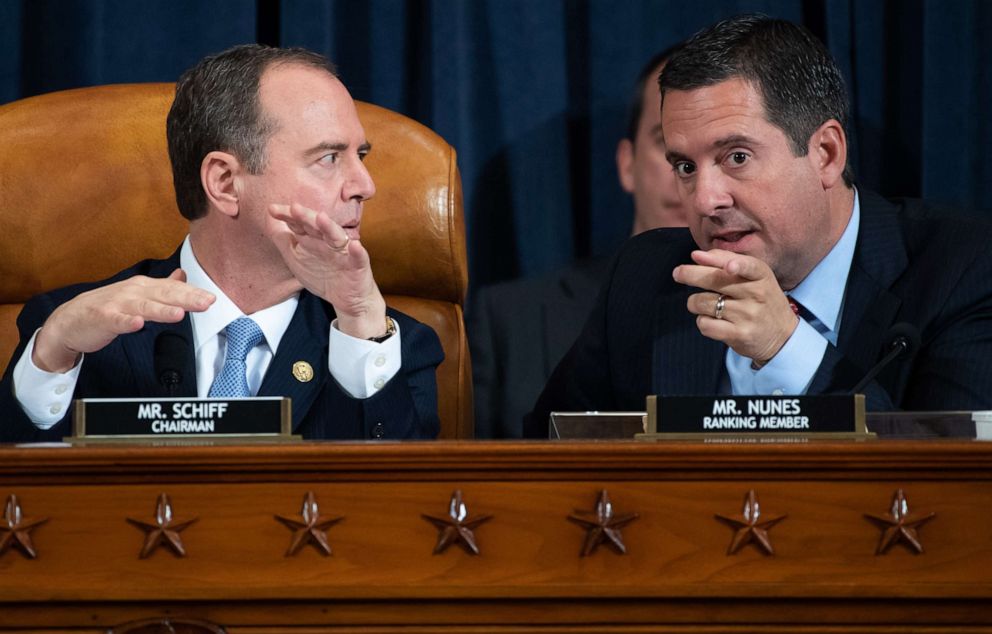
Dems say military aid to Ukraine was released 48 hours after whistleblower complaint given to Congress
Rep. Adam Schiff, the Democratic chairman of the House Intelligence Committee, said military aid to Ukraine was released 48 hours after the White House learned that Congress was informed of a whistleblower complaint involving President Donald Trump.
Schiff said his committee was informed Sept. 9 by the intelligence community's inspector general that a whistleblower complaint had been filed. At that point, the director of national intelligence hadn't provided the complaint to Congress.
"On Sept. 9, when the Inspector General informed Congress that that complaint had been withheld, the White House also learned that Congress now inevitably would learn about the complaint," Schiff said. "It was less than 48 hours later that the military aid would be released."
Republicans contend there is no clear evidence that Trump personally forced a "quid pro quo" on Ukraine -- $400 million in security assistance in exchange for launching an investigation that includes Democrat Joe Biden – because Ukraine eventually received the money without the public announcement the president wanted.
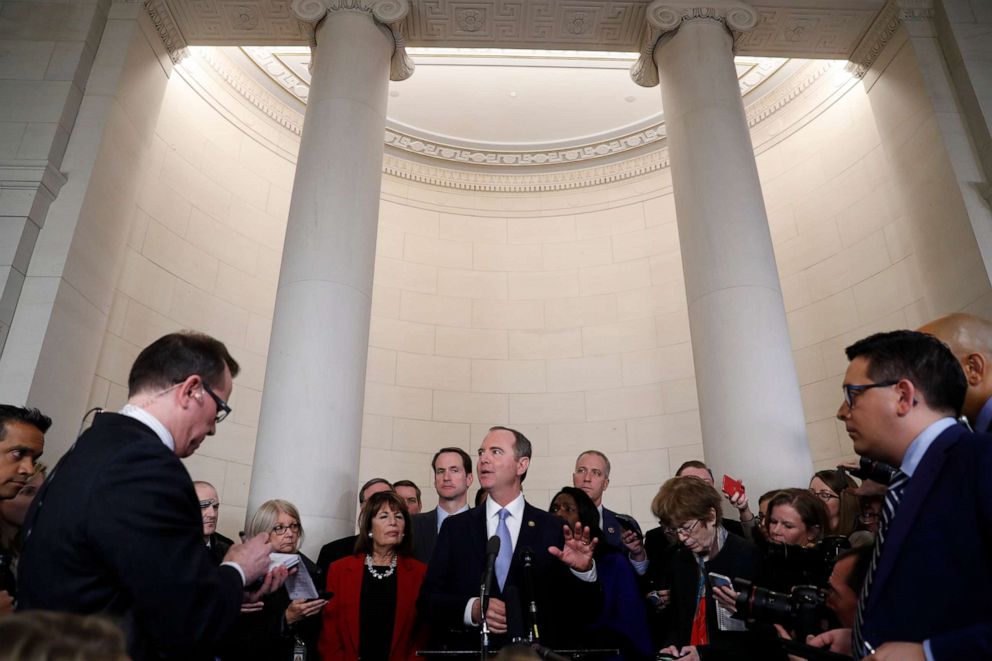
Schiff's comments suggest the money might have remained frozen, despite objections from Pentagon and State Department officials, had Congress not found out about the whistleblower complaint.
Acting White House chief of staff Mick Mulvaney, who ordered the hold, has refused to testify. He said in an October statement that the money was withheld "because of concern about lack of support from other nations and concerns over corruption."
Rep. Lee Zeldin, R-N.Y., also said the White House was approaching a deadline with the end of the budget year, on Sept. 30, and that there were legal requirements that ensured the president had to validate that there were efforts to root out corruption.
"They had to get it done when they did," Zeldin said.
"We wanted to make sure that as Zelenskiy came in, that he was taking the steps, as he got elected on a platform to root our corruption," he added.
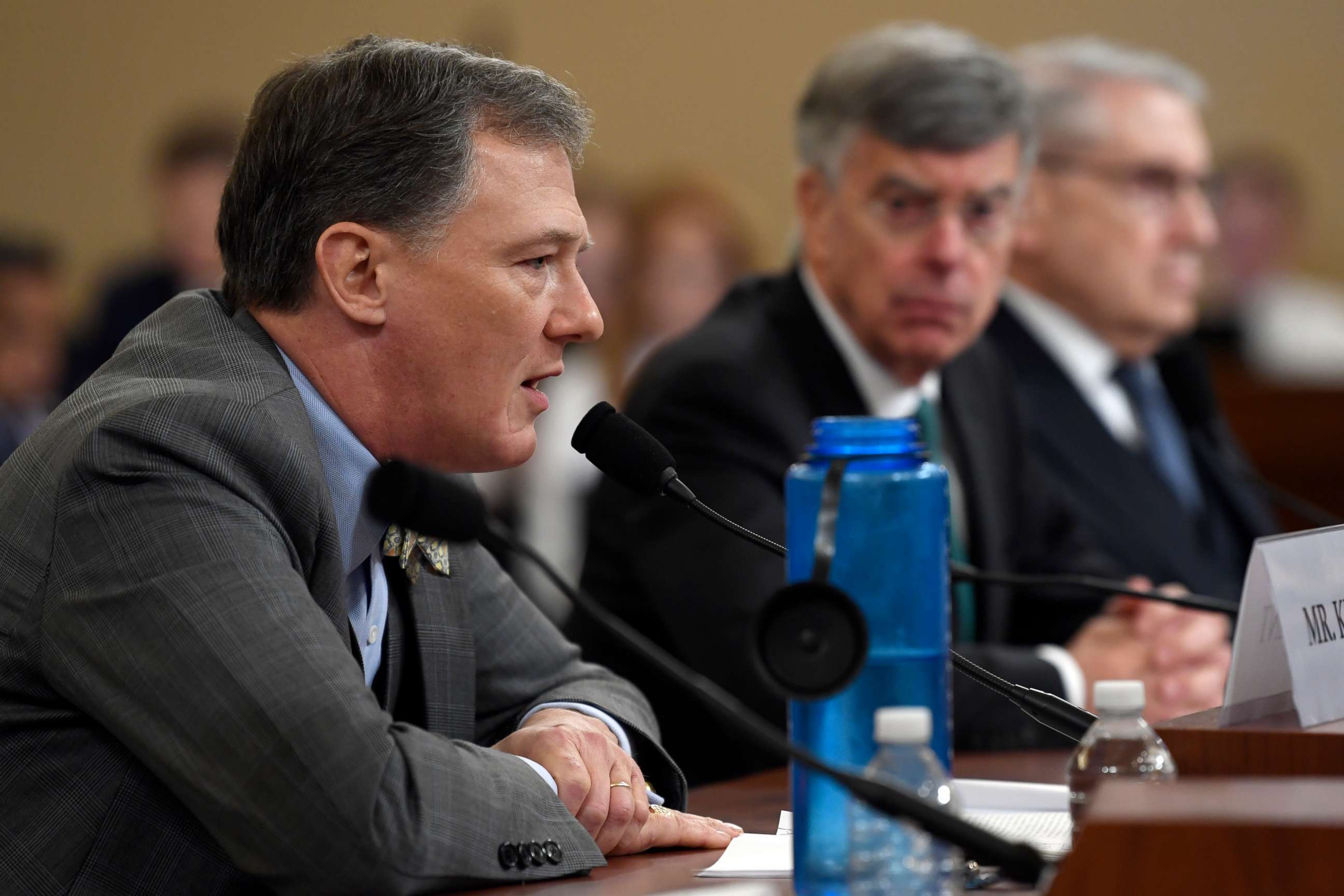
The witnesses played it straight
Seasoned diplomats, Taylor and Kent have decades of experience walking a fine line when trying to make their point. So it's probably no surprise that neither took the bait when Republicans or Democrats tried to drag them into politics.
But there were some interesting moments, including when Ohio Republican Rep. Jim Jordan told Taylor he wasn't much of a "star witness" because most of Taylor's information was second-hand.
Upon hearing this, Taylor responded, "I don't consider myself a star witness," and added, "I'm not here to take one side or the other."
Taylor and Kent also refused to comment when asked by Rep. John Ratcliffe, R-Texas, whether Trump's July 25 phone call with Ukraine's president constitutes an impeachable offense.
"That is not what either of us are here to do," Taylor said. "This is your job."
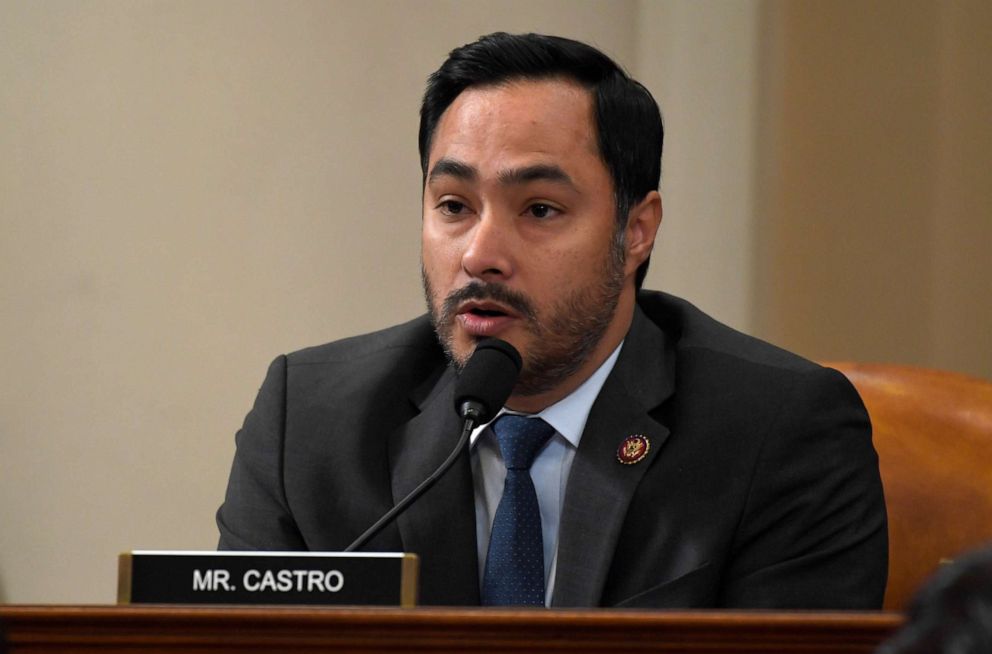
At one point, Democratic Rep. Joaquin Castro tried to make the point that Trump shouldn't be let off the hook because military aid to Ukraine was eventually released by White House. Castro, D-Texas, asked the witnesses if attempted murder and robbery is a crime.
"I think that's right. I will go out on a limb and say yes, it is," Taylor said, with a slight smile.
Castro pressed, "Is attempted extortion a bribery or a crime?"
Taylor answered, "I don't know, sir."
GOP wants first-hand knowledge, but not Trump's
Republicans repeatedly questioned the witnesses' ability to speak on events because they lacked firsthand knowledge.
"I mean, I've seen church prayer chains that are easier to understand than this," Jordan exclaimed during the hearing.
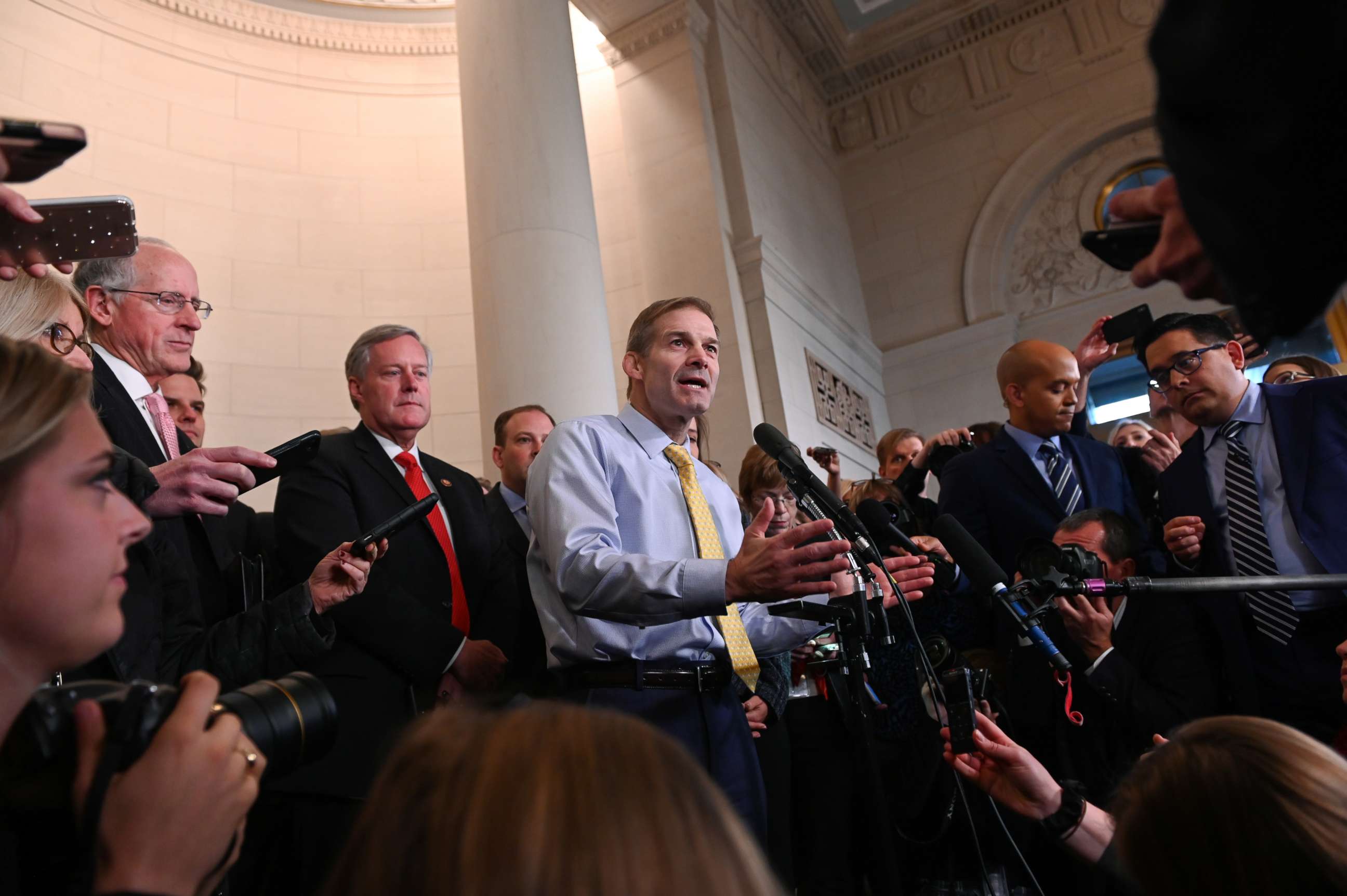
Asked Rep. Mike Turner, R-Ohio, of Taylor's account, "But since you learned it from others, you could be wrong. Correct?"
"I am telling you what I heard them tell me," Taylor replied. "I've told you what I heard."
Democrats dismissed the GOP complaints and said much of the witness testimony obtained by Congress corroborates the initial concerns raised by the intelligence community whistleblower. They also plan to call Sondland, who spoke directly to the president, to testify in public.
"The facts in the present inquiry are not seriously contested," said Schiff.
Democrats also noted that the White House has blocked other key players with relevant firsthand knowledge of events from cooperating with their inquiry, including former national security adviser John Bolton, and Mulvaney.
And as Republicans demanded that the whistleblower -- who Jordan referred to as "the guy who started it all" -- step up to testify, Rep. Peter Welch, D-Vt., offered another suggestion for a witness with firsthand knowledge of the events.
"I'd be glad to have the person who started it all come in and testify," Welch said. "President Trump is welcome to take a seat right there."
ABC News' John Parkinson contributed to this report.




